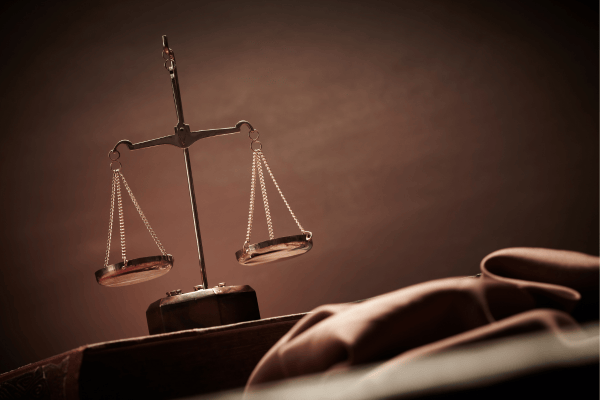
The Digital Frontier: Understanding Web Crawlers in Modern Business
Imagine navigating a vast digital ocean where information flows like intricate currents, and web crawlers are your sophisticated navigation tools. As a business professional or technology enthusiast, you‘ve likely encountered the complex world of web crawling—a realm where technology, law, and ethics intersect in fascinating ways.
Web crawlers represent more than simple automated scripts; they are intelligent digital explorers that systematically traverse the internet, collecting, indexing, and analyzing online content with remarkable precision. But here‘s the critical question that keeps many technology leaders and legal experts awake at night: Are web crawlers truly legal?
The Evolution of Web Crawling: From Simple Indexing to Strategic Intelligence
The journey of web crawlers began in the early days of the internet, when search engines like AltaVista and early Google prototypes needed efficient methods to map the rapidly expanding digital landscape. What started as a technical necessity has transformed into a sophisticated business intelligence tool that drives strategic decision-making across industries.
Legal Foundations: Navigating the Complex Regulatory Ecosystem
International Regulatory Perspectives
Web crawling operates within a nuanced legal framework that varies dramatically across different jurisdictions. In the United States, the legal approach tends to be more permissive, often interpreting web crawling under fair use doctrines. Conversely, European regulations, particularly those governed by GDPR, impose stringent requirements on data collection and processing.
United States Legal Landscape
American courts have generally been more lenient towards web crawling, particularly when the extracted data serves transformative purposes. The landmark case of eBay v. Bidder‘s Edge established early precedents, suggesting that unauthorized data aggregation could constitute digital trespass under certain circumstances.
European Union‘s Strict Compliance Framework
The General Data Protection Regulation (GDPR) introduces complex layers of compliance for web crawling activities. Organizations must navigate explicit consent mechanisms, data minimization principles, and robust user privacy protections.
Key Legal Considerations in Web Crawling
Several critical factors determine the legality of web crawling:
Intention and Purpose: The underlying motivation for data extraction plays a crucial role. Research, academic, and non-commercial purposes typically receive more lenient interpretations compared to direct competitive intelligence gathering.
Method of Data Extraction: Technical approaches matter significantly. Respectful crawling that adheres to [robots.txt] guidelines and implements rate limiting demonstrates ethical data collection practices.
Data Usage and Transformation: Courts often evaluate whether the extracted data serves a transformative purpose that adds value beyond mere replication.
Technological and Ethical Boundaries
Respecting Digital Boundaries
Ethical web crawling goes beyond mere legal compliance—it represents a commitment to responsible digital interaction. Modern crawlers must implement sophisticated mechanisms that:
- Recognize and respect website access restrictions
- Minimize server load and potential disruption
- Provide transparent identification through user agents
- Implement intelligent rate limiting strategies
Authentication and Access Management
Contemporary web crawling requires advanced authentication techniques that balance technical capabilities with legal and ethical considerations:
- Dynamic IP rotation to prevent blocking
- Intelligent user-agent management
- Distributed crawling infrastructure
- Advanced request header optimization
Landmark Legal Cases Shaping Web Crawling Jurisprudence
Significant Judicial Precedents
Several groundbreaking legal cases have dramatically influenced the web crawling landscape:
LinkedIn v. hiQ Labs (2019)
This pivotal case challenged traditional interpretations of computer fraud statutes. The Ninth Circuit Court‘s decision suggested that scraping publicly accessible data might not inherently constitute unauthorized access, providing nuanced guidance for future web crawling practices.
Google Books Project
This ambitious initiative demonstrated how transformative use arguments could expand digital content accessibility while navigating complex copyright landscapes.
Business Intelligence and Strategic Implications
Transforming Data into Competitive Advantage
Web crawlers have evolved from simple indexing tools to sophisticated business intelligence platforms. Organizations can leverage ethical crawling techniques to:
- Monitor competitive landscapes
- Track market trends
- Analyze consumer sentiment
- Develop predictive intelligence models
Risk Mitigation Strategies
Successful web crawling requires a holistic approach that balances technological capabilities with legal prudence:
- Develop comprehensive governance frameworks
- Invest in legal and technical expertise
- Implement robust compliance mechanisms
- Maintain transparent data collection practices
Future Trends and Emerging Technologies
The Next Frontier of Web Crawling
Artificial intelligence and machine learning are rapidly transforming web crawling methodologies. Advanced algorithms can now:
- Understand contextual nuances
- Adapt to dynamic website structures
- Implement intelligent data extraction techniques
- Provide real-time compliance assessments
Practical Recommendations for Organizations
- Conduct thorough legal assessments before implementing web crawling strategies
- Develop clear internal policies and guidelines
- Invest in continuous training and education
- Stay updated on evolving legal and technological landscapes
- Prioritize ethical data collection practices
Conclusion: Navigating the Digital Ecosystem Responsibly
Web crawling represents a powerful intersection of technology, law, and strategic intelligence. Success in this domain requires a delicate balance between innovative capabilities and rigorous ethical standards.
By understanding the complex legal landscape, implementing responsible technologies, and maintaining a commitment to ethical data extraction, organizations can transform web crawling from a potential legal liability into a strategic asset.
The digital world is not about pushing boundaries—it‘s about expanding possibilities while respecting fundamental principles of privacy, fairness, and mutual respect.










